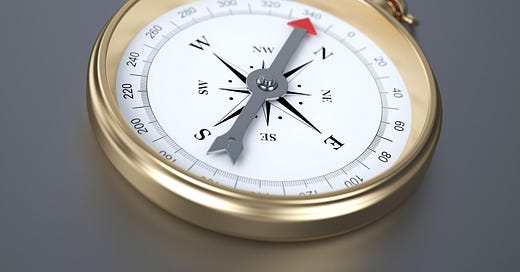We can never truly know what it was like to live in a time other than our own. Still, I often wonder what those who will look back on this moment—decades or even centuries from now—will see from their vantage of detachment.
Much of that, of course, will depend on what happens next. We stand at a juncture where the possibilities are both infinite and extreme—from the collapse of American democracy into tyranny on one end of the spectrum, to a triumphant rejection of oligarchy, autocracy, corruption, and terror, and the start of a resilient new chapter in the American story, on the other.
For most of my life, the stakes of our political debates, while significant and profound, felt bound by the gravitational pull of the accumulated mass of our history. We could trace through-lines that wavered and built over time; sometimes they were at odds with each other, but they felt mostly constrained by the laws and customs many of us believed were so enshrined in the mechanisms of our government that they would endure without question.
The realization that all of this was an illusion—and the internal reckonings that has caused so many of us to contend with—is a feeling of loss and betrayal that I don’t think future generations will fully appreciate. We all go through life with certain assumptions, based on a combination of our experiences and a good deal of our own biases. That tens of millions of our fellow citizens would enthusiastically choose to embrace a failed businessman, racist, incurious, corrupt con artist—and stick by him despite being a convicted felon, sexual abuser, and inciter of a violent insurrection—has shredded the internal maps we used to guide our lives and expectations for the future.
I remember, in the days before GPS, what it felt like to be truly lost, without any sense of how you would find your way back to a place you knew. That rising panic—the sense that you already were on this street, the question of whether it should be a left or a right that will guide you out of the mounting second-guessings—rushes back as I scan headlines that seem to be increasing in both their darkness and absurdity.
I wonder how past generations felt during eras of rapid destabilization and disorientation. I’m sure many of the core feelings were similar. But as I scroll through the news on my phone, send instantaneous messages to friends and family around the world, and check social media feeds shaped by impenetrable algorithms—to say nothing of the shadow AI casts over all of this—I wonder how unique our experience is now, curated as it is by us looking down, alone, at a screen instead of up, together, at each other and the world around us.
One of the powers of art is that it touches us across cultures and time. We imagine those who painted on caves. We nod along at the incredible human insights of Shakespeare. We can be moved to tears by a song in a language we don’t even understand. Such is the power of human connectivity.
Watching Trump and Musk pound their chests, watching the performative caricatures of masculinity from so many in and around this regime, seeing the greed and the pettiness, the cruelty and the incompetence, is to realize that these people will never understand what it means to be connected to something larger than their grievances or appetites of self-interest.
What they lack, it turns out, is also the blueprint for what we can use to defeat them. It is the resilience of empathy and mutual support, the strength of broad and diverse communities, the power of knowledge and critical thinking, the justice of the rule of law. When we the people rise up, march and peacefully protest, gather in defiance, organize, and reach across our many societal divides, we expose their cowardice and bankrupt leadership. They hate democracy because they fear its power—a shared act of imagination, born of the people’s will, that is beyond their capacity to ever understand.
This is a call to action that stretches across all the generations alive today. We can feel the winds at our back from those who came before us. A strong breeze of hope that we will use to teach future generations why—once again—humanity prevailed.





Father Richard Rohr (who founded the Center for Action and Contemplation in Albuquerque about 40 years ago) frequently discusses what he calls the wisdom cycle: Order, Disorder, Reorder (and repeat.) My reality used to include a profound dependence on the Order that the USA gave me. That was shattered in the election of Nov 2024, and it continues to be tattered. We are living in Disorder, and we are working to repair our democracy and pull back from this oligarchy/autocracy. It requires strength to face a period of Disorder (whether from a failed marriage, business chaos, professional setback, family or personal illness, or governmental failure, etc.) Those who are speaking and working now are the ones who can muster that strength now to use hearts and minds to push into an unknown future, trusting that Wisdom and Love are guiding them. Let's keep going and inviting others to join us!!
This pairs so well with HCRs column yesterday. Someway we must indeed find our collective direction. And preserve what we know to be truthful.